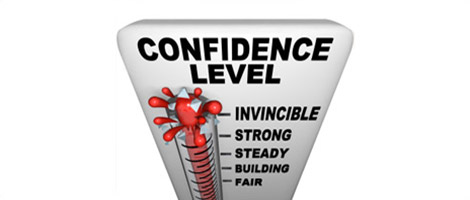
Self Esteem
How do you see yourself when you look in the mirror; do the standards defined by pop entertainment haunt your sense of self?
If you answered 'yes', you are simply part of the growing number of people who are experiencing an alarming down-turn in positive self-image. A shortcoming of positive feelings can lead to an increase in the kind of sexual problems that can arise with low self esteem; performance anxiety leading to erectile dysfunction or premature ejaculation in men, and lubrication and orgasm difficulties in women.
What is Self Esteem
Self esteem is the internal power we have gained from our own image of self. Self-image is the internal score sheet that tracks how you believe you measure up to the other people in your peer group. In other words; self image is designed to place you along some scale from "coolest" or "most beautiful" to "least hip" or "least beautiful." Since this self image is the pool from which we derive so much of our sense of confidence and self esteem, it is important to figure out the variables that make up this sense of self.
When thinking about this concept, there are many questions that you can ask yourself to begin the process of uncovering your self image. Some of them are:
- How attractive do you consider yourself?
- How fun / interesting do you think you are?
- Do you wish you could be different?
It is important to note that many of these types of questions shed light on the fact that we are not solitary creatures. We live in communities that are constantly placing value on certain traits and characteristics. Consequently, our self worth is heavily influenced by the forces that are constantly acting upon us. With one of the primary focuses of many societies being "the capture of the best life-mate possible," it shouldn't be surprising that negative images of oneself could manifest themselves through the superficial masking of our identity and (even) sexual dysfunctions.
In western society, the main two external factors on our self esteem and image are the media that constantly bombards us with "the ideal examples" of what is attractive, plus the feedback we receive from our local communities. Whether it was the time we didn't make the cut for a team, or the time we won an award or the heart of a 'love', our pains, victories, ambitions and fears sculpt us as individuals and as a society.
Due to the nature of what society views as a healthy sexual relationship, the majority of us spend a significant portion of at least our younger lives trying to find that perfect person, or maybe just one that is close enough. Consequently, we all strive to be the best... but since there is no true definition for what best is (it is a unique concept for everyone), we end up competing with everything around us in hopes of winning... with mass media being the guidebook.
Although many may not like it, the reality is that most of us are carrying a lot of emotional baggage due to this social conditioning. In the case of women many, if not a majority, do not like the thought of going on a date without make up; in the case of men, many (if not a majority) focus on building attractive muscles or having a fancy car that helps define their status as powerful.
The reality is that "the perfect image" we compare ourselves to can cause just as much damage as good. Not to say that there is anything wrong with having standards for ourselves, but there is something wrong with setting those standards unrealistically high. When we do this, we begin to have limiting thoughts on what we are able to do, and consequently start becoming our own worst enemy.
Improving Your Self Esteem
There are essentially two ways to improve self esteem: reanalyzing the standards that we are setting for ourselves, and creating and following a plan to reach the goals that we believe in.
Although it may be difficult to be honest and not over-critical of ourselves, it is best to start by listing all of the things we do, and do not, like about ourselves. This can be a little dangerous because so many of us, in this self-hating western culture, find so little to like about ourselves. But this exercise will provide you with a list of things to re-energize you if you get down, and it provides you with a starting point that identifies the areas that you will look into more detail on.
The next step is to analyze all of the negatives things and to put them into perspective. We create a lot of expectations for ourselves based on our perception of how other people think... and truth be told, our perception is often pretty far off base. Some common examples of things people don't like about themselves are: I'm not attractive/smart enough, my breasts are too small, I'm not in good shape, I don't have big muscles, a big penis size, or a nice car...
In the list of examples, and in most people's lists, there will be items that can be changed and then those that can't. Since focusing on things we are unable to change is only going to make those problems worse, it is important to come to peace with them, and focus on the things that we do have control over.
Once you get most, if not all, of the unchangeable things out of the way, you should immediately start feeling a weight leaving your shoulders. The next step is to focus on the things that you can change... whether it is some new clothes that will help you express yourself, or a new diet and exercise plan that will help you reach your physical goals, it is important to note that most of these changes come with time and will require patience as you work towards them. Set small goals along the way so that you can experience victories as you go, and keep raising the bar a little at a time.
There are some really good suggestions listed above, but first and foremost the key to good self esteem is good self awareness. Think about all your good qualities and start to change the bad ones - but don't get down on yourself for your failings, we all have them, and you are not alone in the doubt that comes from self-critiquing. Let the things you can't change fall by the wayside and make sure that you tackle, with tenacity and fortitude, the things that you can change. With those changes will come a re-birth of your attitude to life and a quantum leap in your sense of self-esteem!

